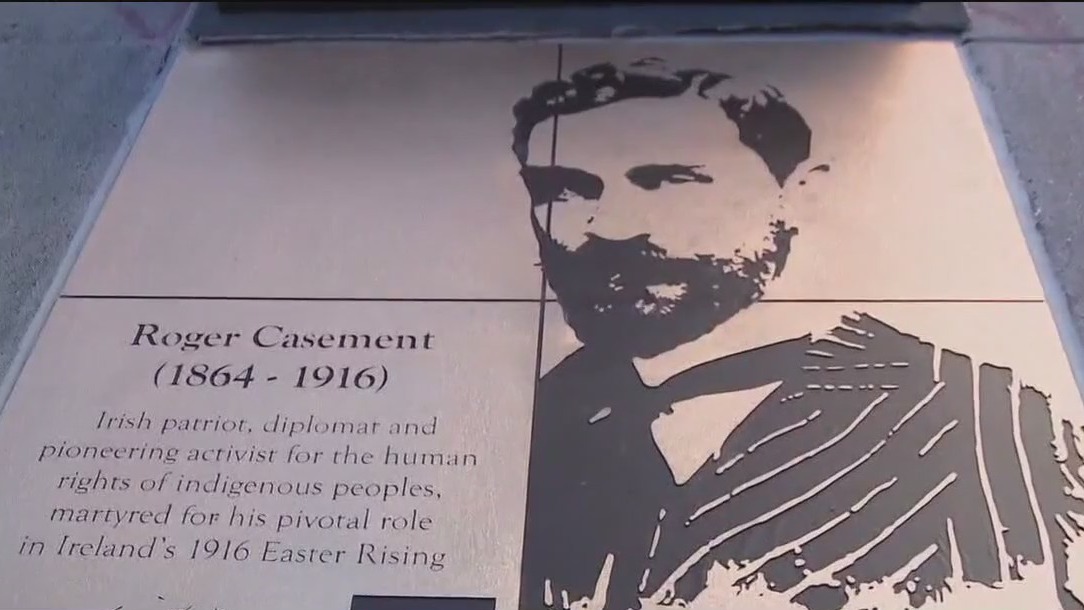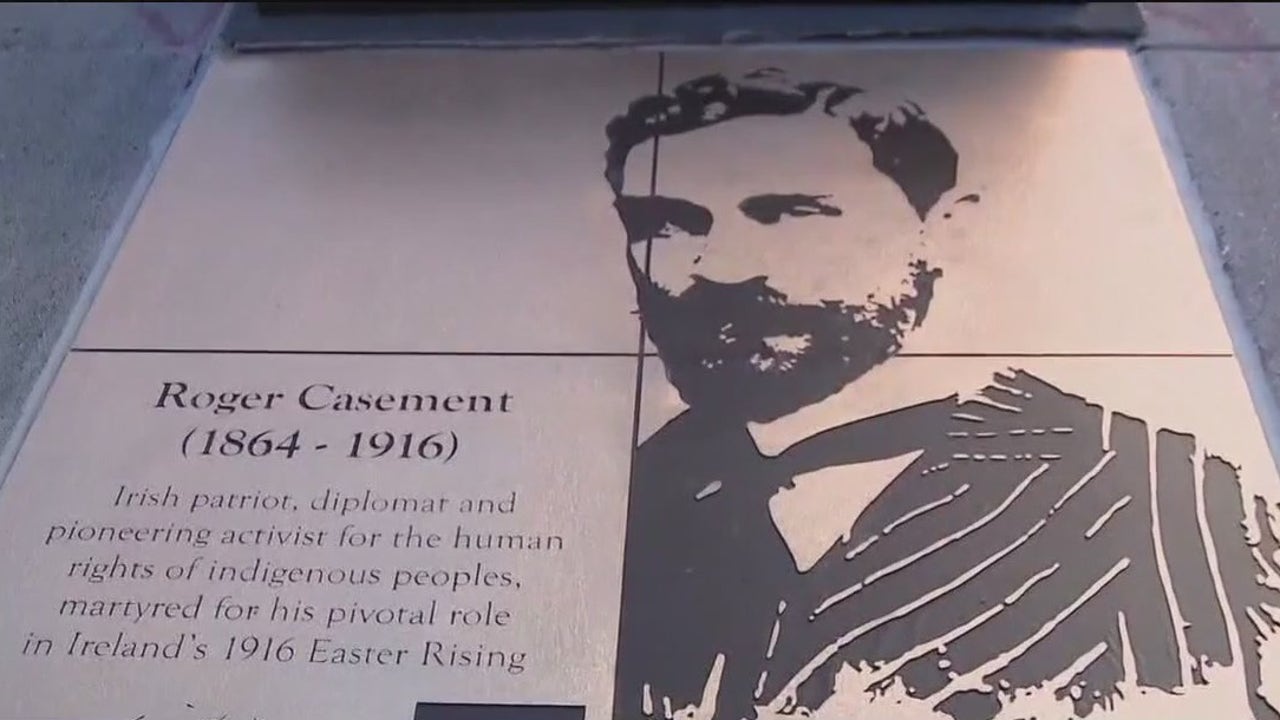
SAN FRANCISCO – It was a commemoration nearly 10 years in the making. The tribute to honor Irish diplomat and human rights activist, Roger Casement, along the Rainbow Honor Walk was held in San Francisco‘s Castro District this week.
Roger Casement Day
The Rainbow Honor Walk, at 18th and Castro streets, features bronze plaques along the sidewalk that honor LGBTQ+ individuals who made a significant contribution to society in California, the U.S. and around the world.
Local leaders believe the historic figure is connected to San Francisco’s past, present and future. From now on, Oct. 28 in the city is known as Roger Casement Day.
A local nonprofit posthumously honored the Irish patriot, humanitarian and LGBTQ+ trailblazer on Tuesday. The dedication of the plaque was the culmination of a partnership between the Consul General of Ireland’s office, local officials and San Francisco organizations.
Casement was a gay Irishman and diplomat who was hanged by the United Kingdom for treason in 1916, following his advocacy for Irish independence.
Following his advocacy and Irish independence, his life’s work exposed human rights abuses in several countries and earned him the title of ‘Father of the 20th Century Human Rights Investigations’.
Mayor Daniel Lurie was in attendance to pay tribute to Casement and the city’s shared commitment to human dignity.
Casement’s story
“Roger Casement’s life reminds us that courage knows no borders and the duty to defend justice belongs to all of us,” Lurie said.
Casement’s story also reminds us that moral courage can often begin in solitude in far-off places where no one is watching and moments where empathy defies empire.
Consul General of Ireland to the Western United States, Micheal Smith, talked about Casement’s significance and why it is so meaningful for him to be honored in the city with his own day.
Smith said Casement’s life was full of “dignity, conviction, and compassion.” As the British consul to the Congo, he highlighted abuses that took place there against the Congolese. He also went on to be the consul in Rio de Jainero, covering Peru.
“He was driven by conviction,” said Smith. “He was a gay man and at that time he could not come out.” Smith said he was driven to engage with the people of the world who he felt were persecuted at that time. “He was born in 1864. Ireland was under British occupation at that point.”
During World War I, as the Irish fought to break away from the British government, Casement played a role in a movement called “The Easter Rising.”
“[He] finished his diplomatic career in 1913. He retired and focused on Irish independence. He was involved in the uprising, the rebellion against British rule that took place in 1916,” said Smith. He said Casement was sourcing arms for the rebellion. “The arms were intercepted and he was arrested. He was put on trial in London and eventually executed.”
Smith said Casement left a more comfortable life, although he did move around to different countries, to focus on Irish independence.
Secret diaries
There was a movement to have his sentence commuted, but the British government used his sexuality against him to sway public opinion.
“Remember, he was Sir Roger Casement. He was knighted by the British Empire for highlighting human rights abuses. As a knight of the realm, there was a lot of support behind him to commute his conviction to be executed. During that trial, his diaries, secret diaries that showed he was a gay man were revealed. At that time, that eroded his support and was used against him and unfortunately, he was then executed.
Casement’s legacy
Although Casement had no specific ties to the Bay Area, Smith said he was a man who was curious about the world. “He wanted to overcome human rights abuses. He went to different corners of the world and was successful at highlighting those abuses and making sure things change. I think it shows that one person can do that. One person that has dignity, has compassion, has conviction can really make a difference in this world.”
There is a Casement’s Bar in San Francisco, located in the Mission District, named after this historical figure. Prior to being associated with the Latino community, the Mission was largely a working class Irish neighborhood. The Irish bar prominently features Casement’s portrait and recently held a benefit for his plaque at the Rainbow Honor Walk.

